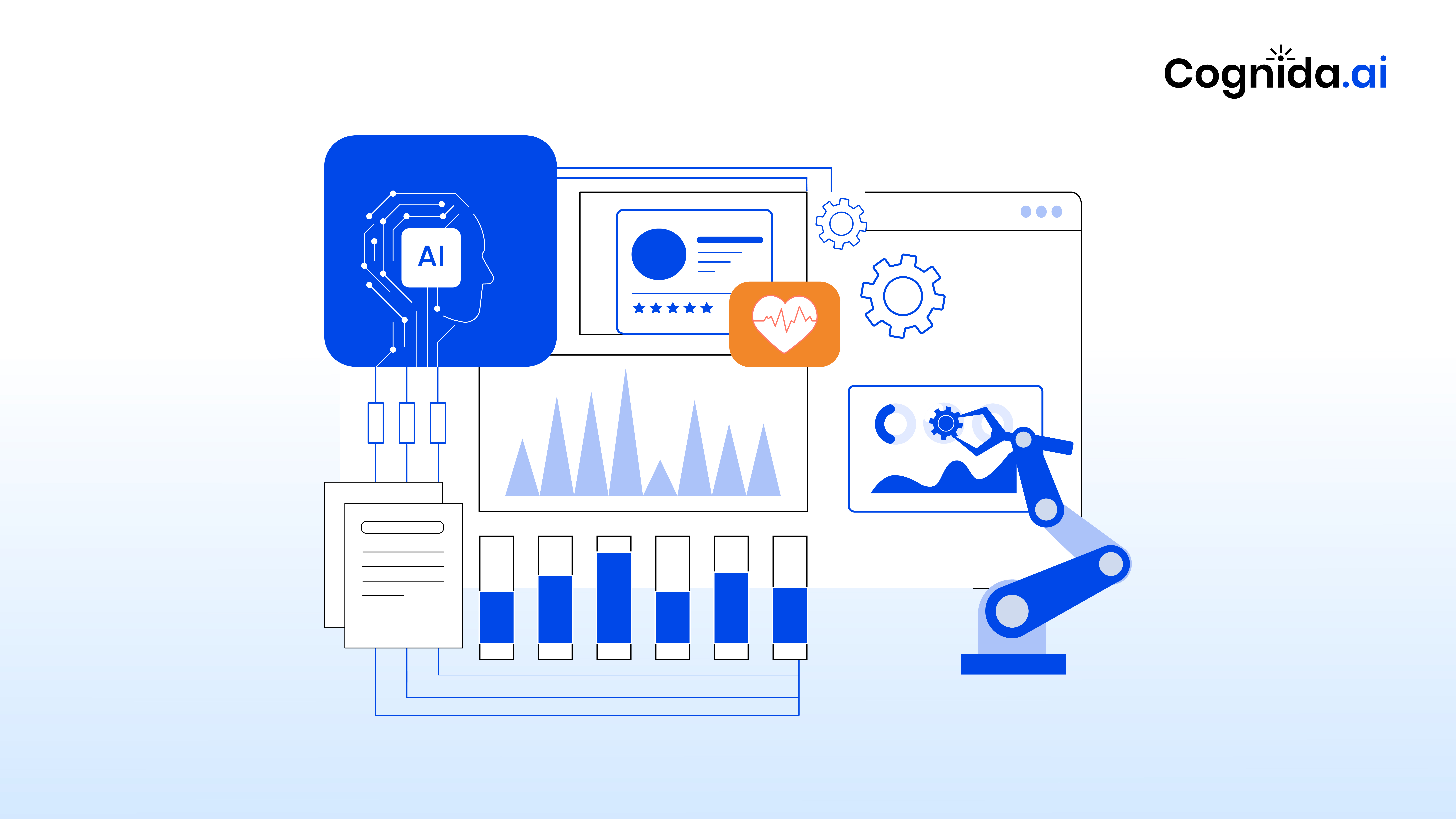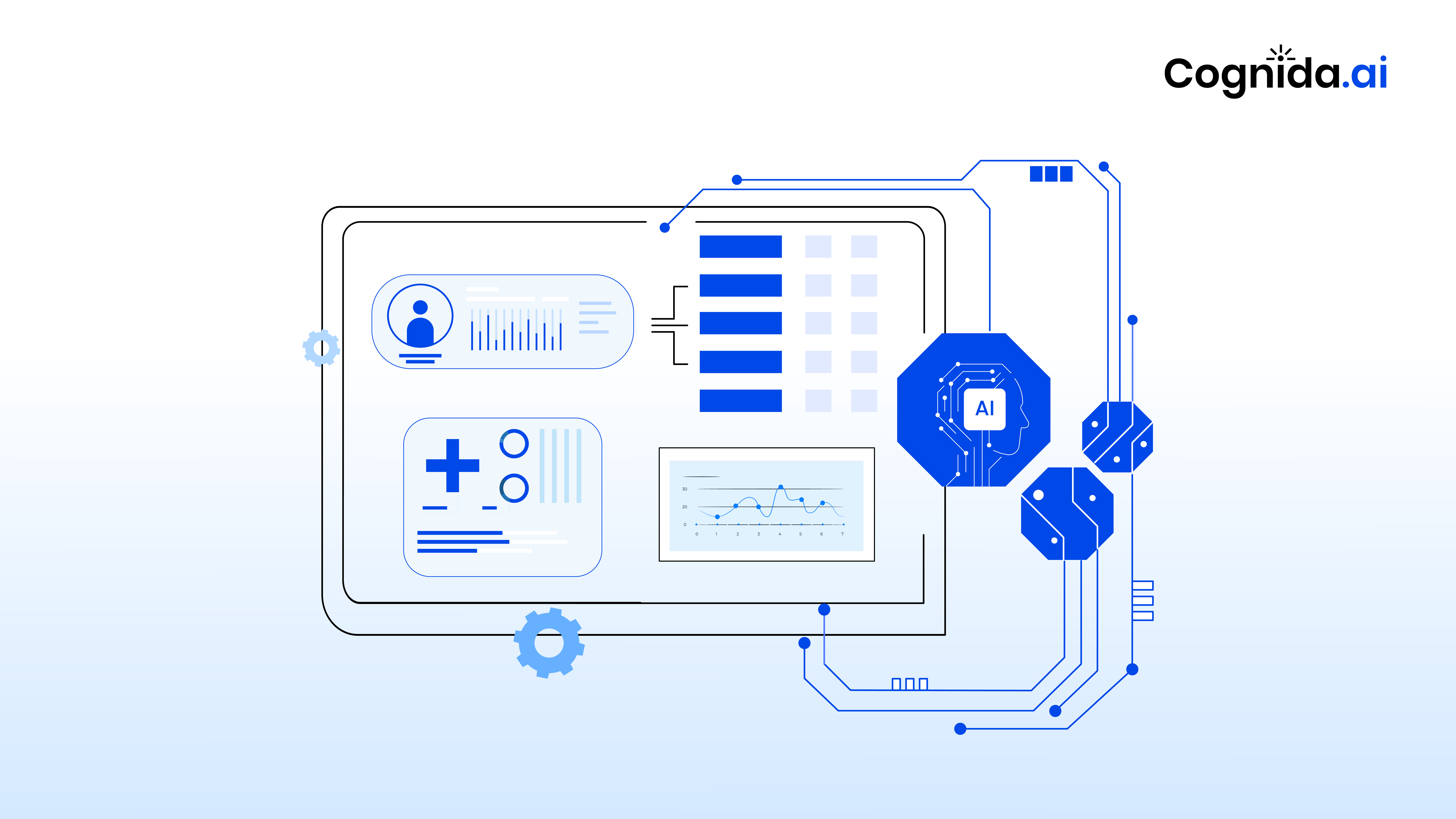AI in Healthcare – Perspectives from the Frontier of Innovation

This week, I had the opportunity to attend the AI in Healthcare & Pharma Summit, organized by Corinium Group and learn from some great leaders in healthcare innovation. As someone who’s been working closely in this industry for 15+ years, I couldn’t help but think of all the amazing changes AI is bringing across the healthcare ecosystem. From drug development to clinical trials, the possibilities seem limitless, and innovation is happening faster than ever. It was clear that AI is becoming a necessity in healthcare rather than a “nice-to-have”.
The Evolution of Precision Medicine and Drug Discovery
Dr. Schmidt from Onc.ai gave one of the most engaging talks, delving deep into ways AI is revolutionizing drug discovery and precision medicine. What caught my attention were the practical applications in tailoring personalized patient outcomes according to their distinct genetic and clinical profiles. Our ability to decipher imaging biomarkers is now improved by deep learning resulting in more precise tumor assessments and improved clinical trial outcomes.
The way technology is changing the drug development process is really fascinating. AI is now being leveraged for patient screening, measure tumors, track clinical trial endpoints, and predict patient outcomes in the initial phase. However, there are still issues that need to be resolved, the most important among them is the quality and availability of training data. The requirement for trustworthy data increases as move to later phases, where adverse event monitoring and survival predictions take center stage, the need for reliable data becomes even more critical. We at Cognida.ai are dedicated to assisting our clients in addressing these obstacles head-on because we recognize that doing so is essential to the future of healthcare innovation.
The Multi-Modal Future
The movement toward multimodal models was a recurring theme. To produce a more thorough and accurate picture of patient health, these models seek to combine variety of datasets—everything from genetic information to imaging and clinical trial data—and apply sophisticated algorithms. This presents huge potential to forecast the course of a disease and determine the best course of treatment. Nevertheless, there are unique challenges in integrating these models. Training data must be varied and accurate, explainability is an issue, and the commercialization of these technologies is in its nascent stages. At Cognida.ai, we understand how critical it is to address these challenges, and we continue to invest in solutions that will accelerate the adoption of multimodal AI in healthcare.
GenAI in Real-Time Healthcare
The field of Generative AI is experiencing the most revolutionary advancement. Both the challenges and successes in implementing these systems were emphasized in several presentations, including one from Ohio Health. Between all this it is particularly encouraging to see physicians embrace these tools, especially for clinical documentation. At Cognida.ai, we have been actively working to address this pain point using our Zunō.Lens and Zunō.Assist based solutions.
EvoCancer GPT, a transformer-based language model developed by Dana Farber for cancer research, is an example of this trend towards GenAI-driven innovation. These specialized models demonstrate how the field is evolving towards applications that are highly specialized, and domain-specific.
Critical considerations for the Future
Several important themes came to light throughout our Cognida.ai-led panel discussion and our innumerable interactions with top healthcare executives:
- Security and Privacy: Investments in security is growing in tandem with the proliferation of AI applications in healthcare. This isn’t just about protection – it is about building trust.
- Responsible AI practices: The industry is taking significant steps toward addressing bias and ensuring fairness. These are no longer catchphrases – they are critical to ensuring that AI-driven healthcare solutions benefit all patients and providers equally. The foundation of Cognida’s AI strategy is ethical and responsible AI, ensuring diversity in data sets and tackling bias in AI algorithms. We believe that ethical AI practices are not just the moral thing to do but also crucial to gaining trust of both patients and healthcare professionals.
- Integration Challenges: Cloud integration and pipeline development remain critical challenges, and companies like Cogindia.ai are developing solutions that make these transition smoother and more reliable.
The Road Ahead
As I reflect on the conversations and insights from the summit, I am both excited and humbled by the opportunities ahead. At Cognida.ai, we are not just observers in this transformation, we are an active participant in shaping the future of healthcare delivery
As I left the event, I couldn’t help but feel a sense of optimism. The convergence of AI technologies in areas like digital health and hyper vision surgical spaces, combined with the practical applications of generative AI in clinical settings, points to a future where healthcare becomes more precise, more accessible, and more effective.
What makes me particularly optimistic is seeing how startups and established players are finding innovative solutions to niche challenges. This collaborative ecosystem, where companies like Cognida.ai can partner with healthcare providers and institutions, is crucial for driving meaningful change.
At Cognida.ai, We are not just witnessing the future of healthcare unfold – we’re actively building it. We are proud to be at the center of this AI revolution, helping our clients navigate their AI journeys and uncover new possibilities for their businesses. Learn More
Stay tuned, as we continue to lead the way in AI innovation for healthcare.


Author: Karthik Puttaparthi, Consulting Leader, Cognida.ai
